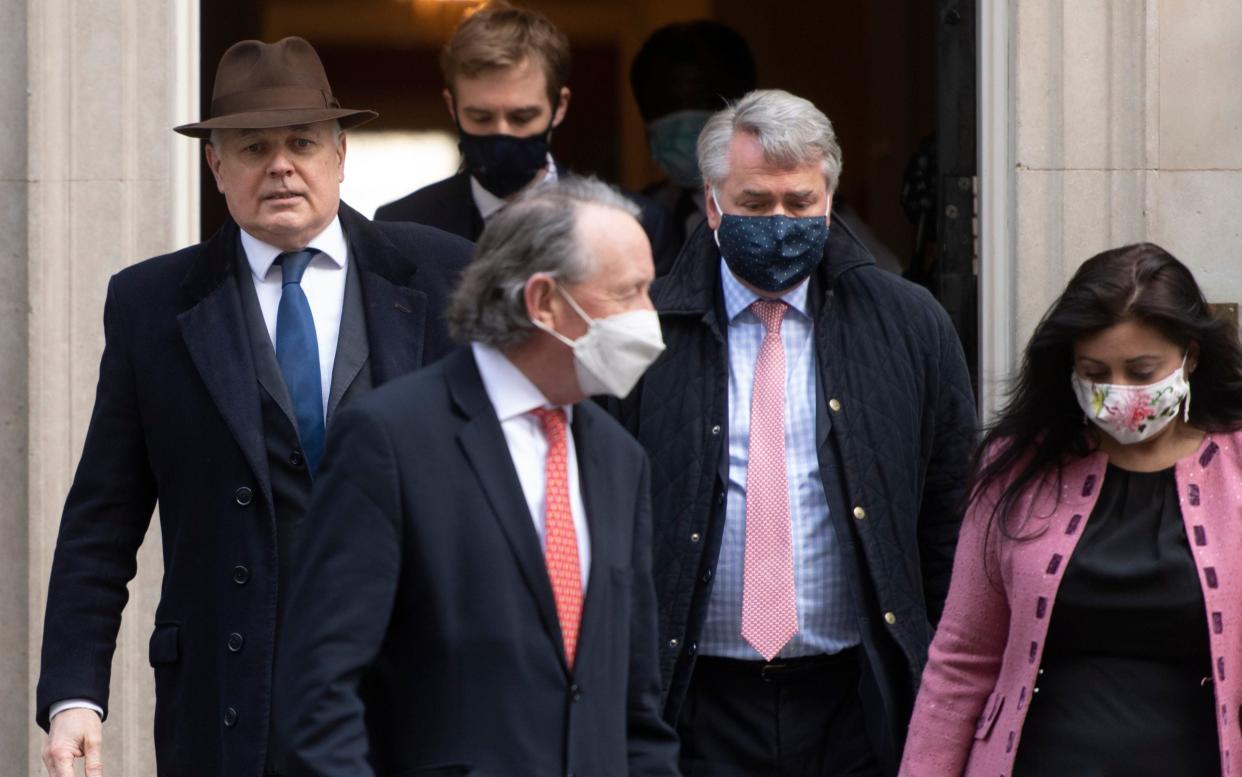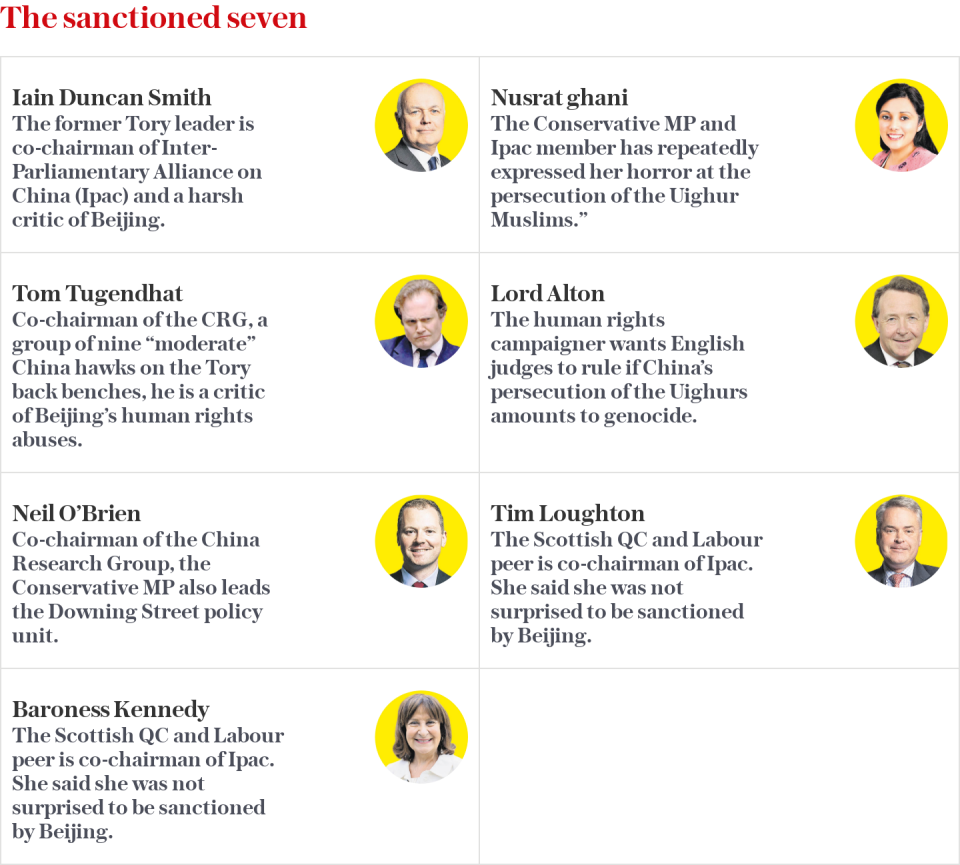Boris Johnson and Joe Biden could set up infrastructure fund to counter China influence

- Oops!Something went wrong.Please try again later.
- Oops!Something went wrong.Please try again later.
Boris Johnson and Joe Biden, the US president, want to set up an infrastructure fund to pay for new roads and bridges in the developing world to counter China's growing influence.
The idea was raised by Mr Johnson in Downing Street talks with some of the UK politicians sanctioned by China late last week.
The Prime Minister is understood to have referred to them as "warriors in the fight for free speech" who have his "full-throated support", expressing bafflement at Beijing's "ridiculous" actions during the private meeting.
One source said Mr Johnson had raised the prospect of a "green alternative" to China's £774 billion Belt and Road Initiative, which has seen Beijing lend billions of pounds to poorer countries to spend on maritime, energy, road and rail projects.
He is said to have voiced concern that there were so many United Nations countries – particularly in Africa – that were "in hoc to the Chinese" because of infrastructure loans handed to them by China.
One idea is to use some of the aid budget – set to hit £10 billion this calendar year despite the cut from 0.7 per cent to 0.5 per cent of GDP – to counter China's influence. The idea would be to tip "hundreds of millions of pounds" into the fund "to give an alternative to China's debt trap diplomacy", a source said.

Mr Johnson is said to have raised the issue with Mr Biden in a phone call on Friday evening. Number 10 said after the call that the pair had "reflected on the significant action taken by the UK, US and other international partners earlier this week to impose sanctions on human rights violators in Xinjiang and expressed their concern about retaliatory action taken by China".
Beijing announced the sanctions against the politicians on Friday. Campaigners said that while UK MPs have faced travel bans in the past, it was the first time British parliamentarians have been formally sanctioned by a nation state.
Number 10 released pictures of the meeting in Downing Street's garden in a move that will be seen as sending a message to Beijing of the British Government's support for the politicians, who are members of the Inter-Parliamentary Alliance on China.
Five affected MPs and peers met the PM – the former education minister Tim Loughon, the former Tory leader Sir Iain Duncan Smith, Tory MP Nus Ghani, and the Liberal Democrat peers Lord Alton of Liverpool and criminal barrister Baroness Kennedy of the Shaws.
Writing on Twitter, Mr Johnson said: "This morning I spoke with some of those who have been shining a light on the gross human rights violations being perpetrated against Uyghur Muslims. I stand firmly with them and the other British citizens sanctioned by China."
He is said to have told the group that the Government was "supportive" of them and it was "disgraceful" what had happened to them during the half-hour meeting. One source said the photocall was important to show that "people on the sanctions list get invited to Number 10 to stand shoulder to shoulder with the PM".
This morning I spoke with some of those who have been shining a light on the gross human rights violations being perpetrated against Uyghur Muslims.
I stand firmly with them and the other British citizens sanctioned by China. pic.twitter.com/WsQ3XvAedP— Boris Johnson (@BorisJohnson) March 27, 2021
In a joint statement, the sanctioned politicians said: "We are delighted that the Prime Minister agreed to meet us today to express his solidarity with parliamentarians and other British citizens sanctioned by the Chinese government.
"This sends a clear signal that the UK will not turn a blind eye to attempts to intimidate legislators, undermine our Parliament or stifle the free and open debate which is essential to our democracy.
"Our focus is not on these sanctions, but on the victims of the Chinese Communist Party. We take this opportunity to raise again the plight of the Uighurs, Tibetans, Hong Kongers and other groups subject to persecution by the Chinese government.
"We reiterate our calls for the Chinese government to honour its commitments to upholding human rights and abiding by international law."
Beijing slapped asset freezes and travel bans on the group just days after Britain joined the US, Canada and the European Union to announce a raft of sanctions on Chinese officials accused of "appalling" human rights violations against the Uighurs.
The Tory MPs Tom Tugendhat and Neil O'Brien, barrister Geoffrey Nice QC and academic Joanne Smith Finley were also singled out by China's ministry of foreign affairs alongside a series of entities – the China Research Group (CRG), the Conservative Party Human Rights Commission, Uighur Tribunal and Essex Court Chambers.
The common theme among the nine individuals and four groups blacklisted was their role in drawing attention to reports of gross human rights abuses by the Chinese regime against its Uighur Muslim minority in the northwestern province of Xinjiang.

